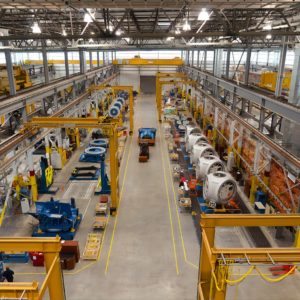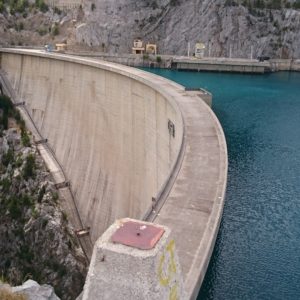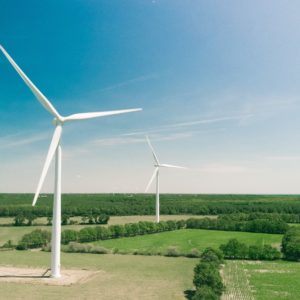"'Bees really provide for us in many ways — food provisioning, human well-being. They're important for our culture, dating back thousands of years in terms of heritage, inspiration of art,' Ngo says."
Articles from Around the Web
Inside Google’s “moonshot goal” to rely on carbon-free energy by 2030
"At its virtual I/O event Tuesday, Google announced that its climate intelligence computing platform will be able to shift tasks between data centers to maximize the use of renewable energy."
When the Government Makes Wildfires Worse
"The blank check for wildfire fighting from the federal government clearly distorts incentives for homeowners. In California, policies regarding insurance markets have compounded the issues. After bad fire seasons resulting in record insurance payouts in recent years, insurers began to raise rates or even get out of the market altogether. In response, the state has sought to freeze policies and rates in what was already the most stringently regulated insurance market in the country."
The American supply chain is alive and well!
"At Eos, we’ve been doing this for years, from bringing resilience to the California power grid during last summer’s wildfires to supplying power to remote communities in Nigeria. Our batteries are powered by zinc, a widely available and conflict-free commodity. From there, we take a less-is-more approach—our product is non-flammable, non-toxic, fully recyclable after its life, and efficient in that it can operate in a wide voltage and temperature range."
To ‘build back better’ we must first be able to build
"Finding bipartisan compromise on the size and scope of an infrastructure bill will be hard enough. But policymakers are ignoring perhaps the most essential issue — permitting, which has become a maze of process obstacles that only Congress can address."
Another California Drought with No New Reservoirs
"In 1979, California’s population was a little more than 23 million. Today, it is more than 39 million. Yet in that entire time, California did not construct one additional, large-scale water storage project – meaning water infrastructure that once suited the state’s irrigation, livestock, and human needs has become chronically inadequate to meet its essential tasks."
How New Wind Turbines Produce Far More Energy
"A key improvement has been modern blades that are far more sophisticated in design, from aerodynamic properties to materials. This has enabled a variety of other improvements to the turbine, including greater size and more height (which means the turbine can tap higher wind speeds), with less noise."
Pipeline Politics Threatens Energy Up North
"Pipelines are controversial, but this isn’t about being for or against the environment. Millions depend on the energy pipelines deliver for their homes, jobs and businesses. Shutting down Line 5 would inflict significant hurt, and it won’t deliver a cleaner energy future."
Recycled Materials ‘Not Good Enough’ Says Startup Whose Synthetic Tights ‘Fully Biodegrade In Landfill’
"In weighing up recycling versus landfill for plastic waste (including synthetic fibers) it is useful to know that less than 10% of all plastic produced since 1950 has been recycled, with 79% in landfills or the natural environment (the remainder is incinerated, releasing CO2 and other hazardous additives into the atmosphere). Plastic recycling is complex and expensive, and the recycled material can be more expensive (and sometimes of lower quality) than the virgin equivalent."
Why we need to stand against the radical Left’s war on energy
"Forcing people to take more money out of their hard-earned paychecks to fund the extreme Left’s big-government climate agenda is not only wrong, but it also ensures America will fall behind our adversaries such as China and Russia in pursuit of global energy dominance. Yet, that is exactly what a carbon tax would do."
Copyright © 2020 Conservative Coalition for Climate Solutions









